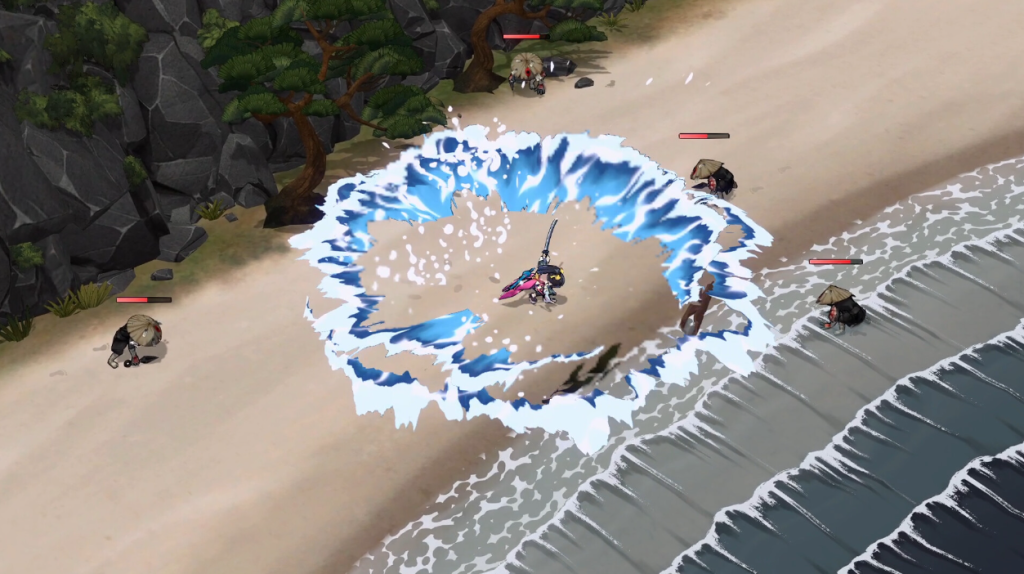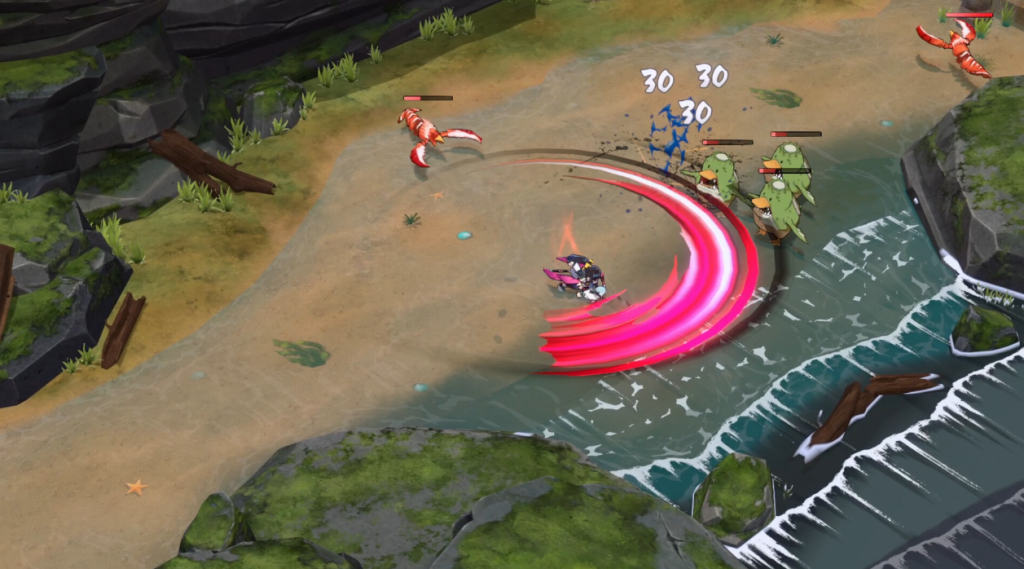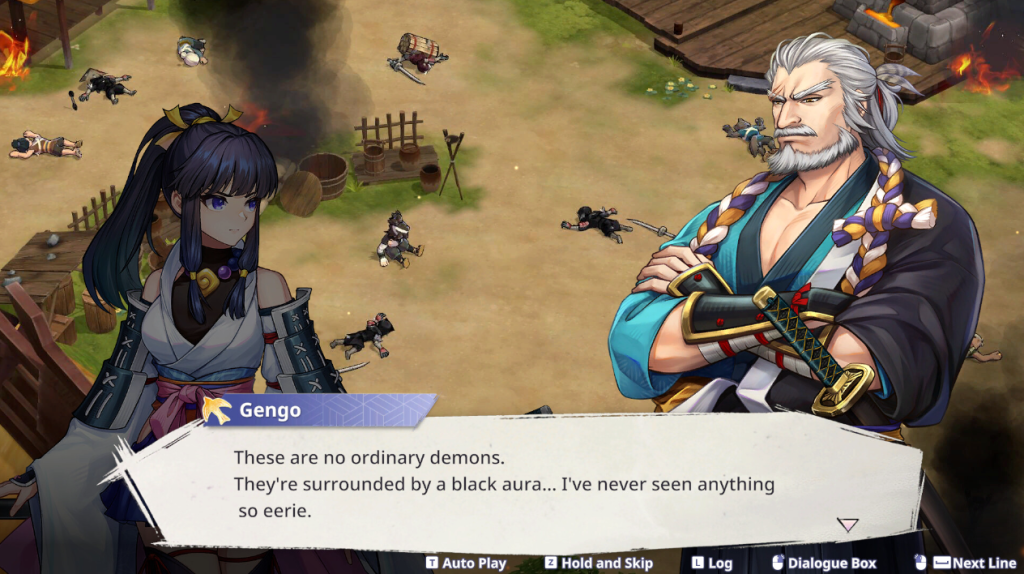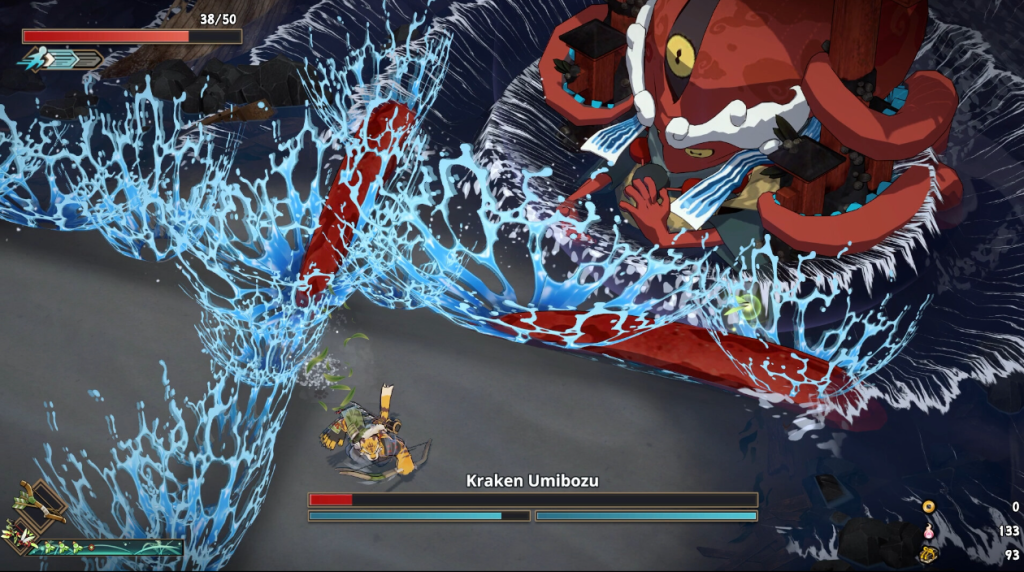Yasha: Legends of the Demon Blade is an action RPG that intertwines the rich tapestry of Edo period Japan with fantastical demon lore and modern roguelite mechanics. Developed to immerse players in a world where the supernatural collides with history, the game offers a blend of fast-paced combat, branching narratives, and an atmospheric journey through a realm teetering on the edge of chaos.

The story unfolds in a world where humans and demons once managed a fragile peace. This equilibrium is shattered when the legendary Nine tailed Fox, ruler of all demons, rises to power and plunges the land into turmoil. As a player, you are thrust into this maelstrom, tasked with uncovering the truth behind the chaos and striving to restore balance.
The game’s setting is steeped in authentic Japanese ambiance, from its meticulously crafted environments to the haunting melodies of its soundtrack. The Edo period backdrop is more than just a visual theme. it’s woven into the narrative, enemy design, and even the weapons you wield. This attention to detail creates a sense of place that is both enchanting and foreboding, drawing players into a world where every corner hides a new danger or secret.

Combat in Yasha: Legends of the Demon Blade is both fluid and strategic. Players can execute seamless combo attacks, chaining together light and heavy strikes to dispatch waves of demon adversaries. The roguelite structure means that each run is unique, with procedurally generated stages, enemy placements, and loot drops. This encourages experimentation and adaptation, as no two playthroughs are ever quite the same.
One of the game’s standout features is its trio of playable characters: the Immortal Ninja, the Oni Emissary, and the Demon Samurai. Each character boasts their own distinctive combat techniques, weapon choices, and narrative arcs. The Immortal Ninja excels in speed and agility, darting between enemies and unleashing rapid attacks. The Oni Emissary brings brute strength and demonic powers to the battlefield, while the Demon Samurai offers a balanced approach with powerful swordplay and defensive skills. This diversity not only adds replay value but also allows players to find a playstyle that resonates with them.
Throughout your journey, you will master a variety of Demon Blades, each with unique abilities and upgrade paths. Collecting hundreds of Soul Orbs, each infused with mysterious talents, allows you to customize your build on the fly. Additionally, blessings from the whimsical Neko Shrine provide temporary buffs and strategic advantages, further diversifying your approach to each expedition.
Exploration is another key pillar of the game. The world is dotted with secret areas and challenging stages that test your skills and reward your curiosity. Upgrade items and gourmet ingredients are scattered throughout the land, allowing you to craft powerful weapons and indulge in fantastical ramen recipes that grant temporary boosts. This blend of combat, exploration, and resource management keeps the gameplay loop engaging and dynamic.

The social aspect of the game is highlighted by the presence of kind hearted demons who host festivals in alternate dimensions. Meeting these allies not only enriches the world but also provides valuable rewards and new opportunities for progression. These encounters break up the intensity of combat and add a layer of charm to the otherwise dark narrative.
However, despite its many strengths, Yasha: Legends of the Demon Blade is not without its flaws. In my experience, the visuals and music are undeniably cool, capturing the essence of the setting and enhancing the overall atmosphere. Yet, there is an underlying sense that something is missing. Technical issues such as long loading screens and occasional crashes can disrupt the flow and immersion, which is especially frustrating during intense runs.
Narratively, the game struggles to maintain cohesion. While there are three distinct storylines for each character, they feel disconnected and at times forced. The world building lacks integration, and the repetition of characters and scenes can make the experience feel disjointed, almost schizophrenic. This lack of narrative synergy detracts from the emotional impact and makes it harder to become fully invested in the story.
Despite these shortcomings, the core gameplay remains enjoyable, especially for fans of action RPGs and roguelites. The variety in character builds, weapons, and upgrade systems offers a satisfying level of depth and replayability. However, I would strongly recommend trying the demo before committing to a full purchase, as the game’s issues may be a dealbreaker for some players.

In conclusion, Yasha: Legends of the Demon Blade is a visually striking and mechanically engaging action RPG that excels in combat and atmosphere but falters in narrative cohesion and technical polish. Its Edo-period setting, diverse characters, and roguelite elements make it a compelling choice for genre enthusiasts, but its flaws prevent it from reaching its full potential. My journey through Yasha was filled with moments of excitement and frustration, but ultimately, it’s a game that’s worth exploring-just be prepared for a few bumps along the way.